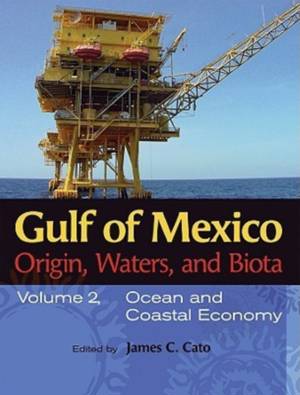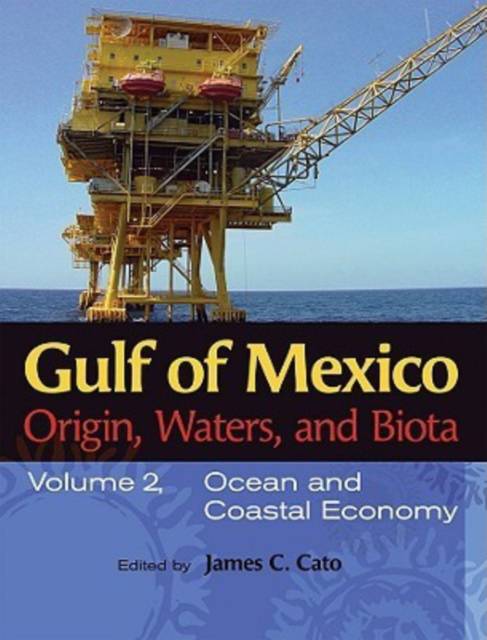
- Afhalen na 1 uur in een winkel met voorraad
- Gratis thuislevering in België vanaf € 30
- Ruim aanbod met 7 miljoen producten
- Afhalen na 1 uur in een winkel met voorraad
- Gratis thuislevering in België vanaf € 30
- Ruim aanbod met 7 miljoen producten
Zoeken
Gulf of Mexico Origin, Waters, and Biota
Volume 2, Ocean and Coastal Economy
€ 61,45
+ 122 punten
Omschrijving
The many economic factors affecting sustainability of the Gulf of Mexico region are perhaps as important as the waves on its shores and its abundant marine life. This second volume in Gulf of Mexico Origin, Waters, and Biota (a multivolumed work edited by John W. Tunnell Jr., Darryl L. Felder, and Sylvia A. Earle) assesses the Gulf of Mexico as a single economic region. The book provides information and baseline data useful for assessing the goals of economic and environmental sustainability in the Gulf. In five chapters, economists, political scientists, and ecologists from Florida, California, Louisiana, Texas, Maine, and Mexico cover topics such as: the idea of the Gulf as a transnational community; the quantitative value of its productivity; a summary of the industries dependent on the Gulf, including shipping, tourism, oil and gas mining, fisheries, recreation, and real estate; the human uses and activities that affect coastal economies; and the economic trends evident in Mexico's drive toward coastal development. This first-of-its-kind reference work will be useful to scientists, economists, industry leaders, and policy makers whose work requires an understanding of the economic issues involved in science, business, trade, exploration, development, and commerce in the Gulf of Mexico.
Specificaties
Betrokkenen
- Uitgeverij:
Inhoud
- Aantal bladzijden:
- 136
- Taal:
- Engels
- Reeks:
Eigenschappen
- Productcode (EAN):
- 9781603440868
- Verschijningsdatum:
- 7/12/2008
- Uitvoering:
- Hardcover
- Formaat:
- Genaaid
- Afmetingen:
- 218 mm x 282 mm
- Gewicht:
- 635 g

Alleen bij Standaard Boekhandel
+ 122 punten op je klantenkaart van Standaard Boekhandel
Beoordelingen
We publiceren alleen reviews die voldoen aan de voorwaarden voor reviews. Bekijk onze voorwaarden voor reviews.










